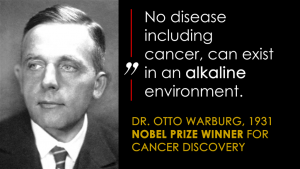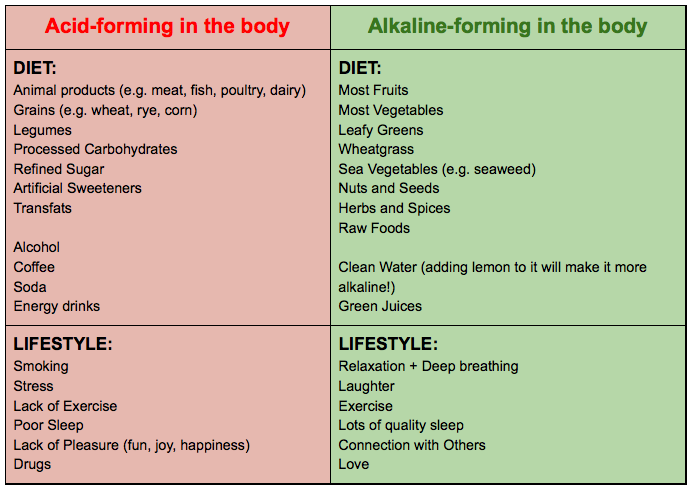Book Appointment Now

pH Body Balance
pH, in chemistry, is a logarithmic scale used to specify the acidity or basicity of an aqueous solution. It is approximately the negative of the base 10 logarithm of the molar concentration, measured in units of moles per liter, of hydrogen ions.
pH is a scale of acidity from 0 to 14. It tells how acidic or alkaline a substance is. More acidic solutions have lower pH. More alkaline solutions have higher pH. Substances that aren’t acidic or alkaline (that is, neutral solutions) usually have a pH of 7.
There is a level of acidity or alkalinity, measured by pH, in a substance at any given time. And there’s an acidic/alkaline balance that has to exist for certain metabolic processes to take place, especially in our own bodies.
Is your body acidic? Many diseases thrive in an acidic body!
 Your body’s blood pH should be between 7.365 and 7.45 (i.e. slightly alkaline, with 7 being neutral). That balance changes given a diet based too heavily in predominantly acidic or predominantly alkaline foods. It also changes due to stress, immune reactions, and any other process that deprives cells of oxygen. Including poor breathing and excessive excersize.
Your body’s blood pH should be between 7.365 and 7.45 (i.e. slightly alkaline, with 7 being neutral). That balance changes given a diet based too heavily in predominantly acidic or predominantly alkaline foods. It also changes due to stress, immune reactions, and any other process that deprives cells of oxygen. Including poor breathing and excessive excersize.
In short, pure water has a pH of 7. Foods above 7 are alkaline, and foods below 7 are acidic.
Acidic foods include refined sugar, chocolate, peanuts, refined flour including wheat and white flour, all meats, shell fish, cheese and dairy, processed foods, beer, and soft drinks. Basically the majority of the typical modern Western diet!
When we consume a predominantly acidic diet, the body becomes too acidic and as a result is forced to utilize its own alkaline mineral resources to maintain livable pH levels.
These minerals include sodium, potassium, magnesium and calcium. Your body is literally stripping itself of these minerals just to establish balance, neutralize the over-abundance of acid, and safely remove it from the body! With this we run the risk of Acidosis, which results in a build-up of acid in the cells, which then decreases energy production in those cells.
A decreased in energy production leads to an inability of the body to repair damaged cells and detoxify heavy metals, and you become more susceptible to both chronic fatigue as well as an increased incidence of disease (cancer tumors thrive in an acidic environment).
Body Repair
 An acidic body leaches essential minerals out of your body dehydrating it in the process. Simply, if you drink one can of carbonated cold drink it takes 32 standard glasses of water to neutralize it. So just imagine what happens if you don’t drink enough water! Now your body has to neutralize the acidic mineral drink. So, since calcium is high in pH, it pulls the mineral from your bones if you aren’t eating enough mineral rich food. This may lead to decreased bone density, and arthritis, osteoporosis, etc.
An acidic body leaches essential minerals out of your body dehydrating it in the process. Simply, if you drink one can of carbonated cold drink it takes 32 standard glasses of water to neutralize it. So just imagine what happens if you don’t drink enough water! Now your body has to neutralize the acidic mineral drink. So, since calcium is high in pH, it pulls the mineral from your bones if you aren’t eating enough mineral rich food. This may lead to decreased bone density, and arthritis, osteoporosis, etc.
Reducing or correcting the acidic levels in your body requires no more than the increase in consumption of alkaline foods and lifestyle. Some alkaline forming fruits are lemons, oranges, cherries, dates, figs, nectarines, pears, watermelon, apples, bananas, and avocados.
Examples of Alkaline pH
Some examples of alkaline forming vegetables are kale, sweet potatoes, cabbage, cauliflower, celery, bell peppers, beetroot, eggplant, cucumber, lettuces, mushrooms, squashes (including pumpkin), greens, and most herbs and spices.
An alkaline forming lifestyle includes a stress free environment, sleep, exercize, fun and laughter. Try earthing, being outdoors, and embracing nature.
Instead of heavy condiments and sauces (which are high in acidity), use alkaline options such as ginger in your cooking!
Instead of frozen vegetables (which are more acidic), visit the fresh food isles. Your local farmers market deserve a visit for fresh organic options! Eliminate anything out of a can or a box, including most of the options in the freezer aisle. Do that, and you’ll be eliminating a lot of acidic forming foods from your diet.





As I could note the acidity causes 2 types of problems: 1 in the short term and 1 in the long term:
1 – in the short term, acidity compresses the cells preventing oxygen from entering. So, without oxygen, the body is unable to defend itself against viruses and bacteria. In addition, the cells die;
2 – in the long run, acidity causes the body to use minerals from other parts of the body to maintain alkalinity. So, the lack of minerals generates all kinds of diseases depending on the mineral that is missing in the body.
Is it right?
Thanks a lot
A nice rounding, thank you!
If we do not feed and care for our bod, it turns to it’s own resources to keep us alive and functioning. The more of these resources that are directed away from their main function, without being replenished, the easier and quicker it is for the body to be attacked and overcome by viruses and diseases.
You’ve brought up some important points about acidity and its effects on the body. The short-term consequences you mention, like decreased oxygen availability and cellular distress, really highlight how sensitive our bodies can be to changes in pH. When our environment becomes more acidic—whether from diet, stress, or other factors—our cells can struggle to function properly, which is concerning when we think about how essential oxygen is for our immune system.
You make some really insightful points about acidity and the body’s sensitivity to pH changes. It’s fascinating how our environment can affect us at such a fundamental level. I’ve been reading a bit about the relationship between diet and acid-base balance, particularly how certain foods can either exacerbate or alleviate acidity. For instance, it seems like a lot of the modern diet, with its heavy reliance on processed foods, tends to lean towards the acidic side, which could have long-term implications for our overall health and well-being.
You raise some really interesting points about acidity and its effects on the body. It’s true that the balance of acidity and alkalinity can have a significant impact on our health, and you’ve pointed out how that can play out in both the short and long term.
You’ve touched on a crucial aspect of health that often gets overlooked or simplified into trends and fads. The relationship between acidity and alkalinity in our bodies is complex and deeply personal, influencing our well-being in ways many of us might not fully appreciate. It’s fascinating how our daily choices—the foods we eat, our stress levels, and even our hydration habits—can tilt this balance one way or the other.
[…] the body’s billions of cells. Other functions of the respiratory system include aiding in the acid-base balance of the body, phonation, pulmonary defense, and […]
It’s interesting how the respiratory system plays such a crucial role beyond just gas exchange. The way it helps maintain the acid-base balance is particularly vital, especially considering how even slight imbalances can affect our overall health.
You bring up a fascinating point about the respiratory system! It’s amazing how interconnected our body’s systems are, and the respiratory system often gets underrated when we talk about balance in the body. Beyond the obvious gas exchange—oxygen in, carbon dioxide out—the role this system plays in managing acid-base balance is critical.
[…] blood also distributes hormones around our bodies, helps to regulate our acid-alkaline balance and body temperature, and destroys invading bacteria and other micro-organisms that bring […]
You’ve highlighted some key roles of blood that often go overlooked. It’s fascinating to think about how our circulatory system works tirelessly to keep everything in balance. Beyond hormone distribution and fighting off invaders, blood also plays a crucial part in transporting nutrients from our food, which keeps our cells happy and functioning well. Plus, the way it helps regulate temperature is something we might take for granted, but it’s vital for our overall comfort and performance. It’s a complex system, and every component seems to have a pretty essential job. What are your thoughts on how our diet can impact these blood functions?
You’ve touched on so many interesting aspects of how blood functions that really underscore the importance of a well-rounded diet. It’s intriguing to think about how certain nutrients can enhance or hinder blood functions. For instance, iron is so crucial for hemoglobin in our red blood cells, and without enough of it, our oxygen transport can suffer. I’ve been reading about how deficiencies in vitamins like B12 can lead to anemia, which really highlights how our meals directly impact our blood and overall health.
It’s great to see your thoughts on the relationship between diet and blood health. You’ve nailed the significance of iron—it’s like the essential building block for hemoglobin, and without enough of it, our bodies can feel pretty sluggish. Many people don’t realize that iron comes in different forms, too. For example, heme iron from animal sources is more readily absorbed than the non-heme version found in plants, which sometimes requires a little more finesse in the diet.
You’ve made some really insightful points about the intricate roles blood plays in our bodies. It’s easy to overlook those functions when we think about blood mainly in terms of its role in injury or disease. The way blood transports nutrients from our food to our cells truly is a cornerstone of our overall health and vitality.
You’ve made some really insightful points about the intricate roles blood plays in our bodies. It’s fascinating how we often focus on the dramatic aspects of blood, like its connection to injuries or diseases, yet there’s this whole silent but powerful function happening all the time. I remember reading about how blood doesn’t just transport oxygen and nutrients but also plays critical roles in our immune response and regulating body temperature.
Blood really is the unsung hero of our bodies, isn’t it? While it’s busy shuttling hormones like a mood-swing taxi service and keeping our internal temperature just right, it’s also playing bouncer at the club called “Body,” kicking out those pesky bacteria and germs. Talk about multitasking!
It’s fascinating to think about blood in that way, isn’t it? Sometimes we get so caught up in our daily lives that we overlook the incredible complexity of what happens within us. The imagery of blood as a tireless taxi service for hormones really captures the essence of its role. It’s as if every drop is carrying not just nutrients and oxygen but also our emotions and reactions to whatever life throws at us.
It really is something to ponder, isn’t it? The way blood operates as that tireless taxi service is such a profound metaphor for what happens deep within us. When I think about it, it reminds me of how interconnected our bodies are—every system working in concert to keep us functioning, often without our conscious awareness.
You touched on something really interesting there—the intricate dance between our body’s systems is like a well-orchestrated symphony, isn’t it? When you think about the blood as a ‘tireless taxi service,’ it’s kind of amazing how it doesn’t just transport oxygen and nutrients. It also brings critical signals from one part of our body to another, ensuring everything stays in sync.
You’ve captured the essence of blood’s role perfectly. It’s fascinating to think about how blood not only transports those all-important hormones but also plays a crucial role in our immune response. Each component, from red blood cells to white blood cells, has a specific job that contributes to the overall health of our bodies.
You nailed it! Blood really is like the ultimate multitasker of the body—much like that friend who does it all but somehow still finds time to show up to every party. It’s wild how it whizzes around, dropping off hormones like it’s making deliveries for a high-end catering gig, all while playing body temperature DJ and keeping those pesky bacteria in check.
You’ve touched on some essential roles that blood plays in our body. Beyond transporting oxygen and nutrients, it’s intriguing to consider how it communicates with our organs and regulates so many functions simultaneously. For instance, the hormonal distribution is fascinating; hormones travel through the bloodstream to target organs, triggering a cascade of responses that can influence our mood, energy levels, and even growth.
[…] forms part of every cell in the body. Comprising on average 50% of a woman’s body weight and 60% of that of a man. Every system and […]
It’s fascinating to think about how water plays such a crucial role in our bodies, isn’t it? The way it supports every system, from digestion to circulation, really emphasizes just how vital hydration is. It’s interesting to consider the differences in body composition between men and women, like you mentioned. That variance can impact everything from our metabolism to our overall health.
You bring up some interesting points about the significant role water plays in our bodies. It’s fascinating to think about how it makes up such a large percentage of our weight and how vital it is for our overall health. Some people might not realize that water is involved in practically every bodily function—from regulating temperature to aiding in digestion and even supporting cellular processes.
It’s interesting how water plays such a crucial role in our bodies, isn’t it? The fact that it makes up such a significant percentage of our weight reflects just how essential it is for our overall health and well-being. I’ve often read that even slight dehydration can affect our mood and cognitive functions, which makes me wonder how much we overlook our hydration habits in daily life.
It’s true, isn’t it? Water’s role in our bodies is both fascinating and, at times, overlooked. When you think about it, it’s amazing how something as simple as staying hydrated can have such a profound impact on how we feel and think. It’s one of those aspects of health that can easily slip our minds with everything else we juggle daily.
It’s interesting how you highlighted the percentage of body weight that water constitutes, especially when you consider how essential it is for every cell. It’s almost mind-blowing to think about how something as simple as water plays such a crucial role in our bodies—yet we often take it for granted.
[…] healthy. … Keep your body’s blood pH in balance by avoiding acidic […]
It’s intriguing to consider how our dietary choices influence the body’s pH balance. The conversation about blood pH can often feel a little complex, but the connection between what we eat and how we feel is easier to grasp when we break it down.
Balancing your body’s pH can definitely have a big impact on how we feel day-to-day. It’s fascinating how what we eat can really alter that balance—too much acidic stuff can throw everything out of whack (think sodas and processed foods).